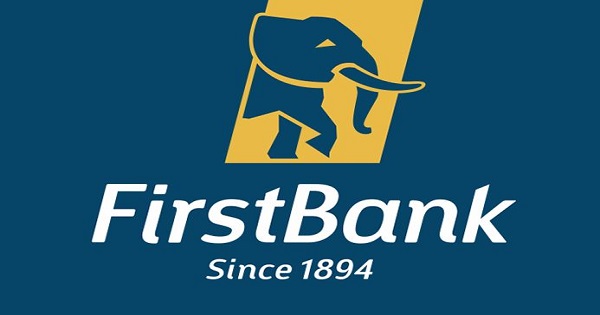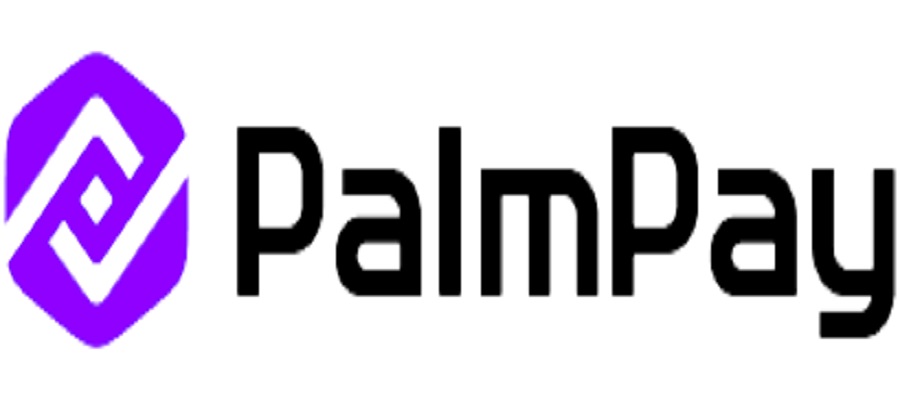E-Financial
How FirstBank is Making Customers Stay-Connected Through Its e-Channels

Folarin is a smart entrepreneur who is in touch with technological advancement and the digital age. He has different apps on his mobile phone which he uses to organise both his business and private lives. He has a food app which he uses to order for his breakfast and lunch, he has another one that takes care of his love for music and another which he uses to manage his transactions online without stepping into a bank. He tells me, his bank is forward looking and futuristic enough to make banking easy for him and his clients.
“I have been banking with FirstBank since I was in school as an undergraduate, says Folarin. My mum opened the account for me. That was where she sent my monthly allowance. After school, I didn’t close the account I simply continued with the tradition.”
It was not difficult for Folarin to decide he would open his corporate account with FirstBank when he started his business a few years ago. He says the ease at which he gets his transactions done on FirstBank’s application, FirstMobile, endears him to the bank.
“I can do many transactions with FirstMobile. I can do bank transfers, check my balance, receive alerts on any transaction I do. There is also a beneficiary section that enables me save the account numbers of people close to me for future transactions.”
The FirstMobile App has over the years offered succour to FirstBank customers.
Folake Ani-Mumuney, Group Head, Marketing & Corporate Communications, FirstBank says “FirstBank wanted a truly branchless experience for its customers and thus enhanced the app to deliver an instant, remote, self-enrolment feature. Hence, in 2015, onboarding process on FirstMobile was improved with self-service feature; empowering customers to remotely complete their onboarding process on the App without visiting a branch.”
In addition, Chuma Ezirim, Group Head, e-Business, First Bank of Nigeria Limited said the soft token was also launched to satisfy the needs of customers who did not want to carry the hard token about. “It serves the same purpose as the hard token but provides the advantage of convenience and mobility as it is installed in the customer’s mobile phone,” he noted.
Another interesting digital service platform by FirstBank is the FirstBillsPay, a biller aggregator platform. It aggregates various billers through a secured connection to the bank, to avail its customers a single payment point for all bills from their accounts.
“In addition to FirstMobile and FirstBillsPay is FirstCheckOut. This is an additional payment option that can be integrated to merchant website that will allow customers pay bills directly from their bank accounts as a substitute to cards. We also have the 894 USSD Quick Banking service as part of our financial inclusion drive. The *894# USSD service makes banking services available across all GSM networks, on any type of device, anywhere and at any time; this gives it a unique selling point,” explained Ezirim.
There are also the Emerging Channels (USSD Collections, mCash, MVISA). These platforms are to ensure FirstBank gets its customers connected in a seamless way in the digital driven age.
“Our FirstBank mVisa is an innovative mobile payment solution that allows consumers to pay for goods and services via FirstMobile by scanning a QR code using a smart phone or by dialing a USSD number on a phone. Payment goes directly from the consumer’s account into the merchant’s account and both parties get real-time notification. The USSD Collections allow merchants to receive payments from customers simply by using 894 USSD string for FirstBank customers. The focus segments for USSD Collections are Manufacturing/FMCGs/ Value Chain Businesses, Petrol Stations, Network Marketing Companies, Transporting Companies, Churches, Schools and others,” says Ezirim.
Furthermore, FirstBank Agent banking was launched towards the end of 2017. The bank recruited Firstmonie Agents and empowered them to carry out basic financial services within their vicinity. Firstmonie Agents are literally human extensions of almost all the banking activities, they are strategically positioned within communities with large population of unbanked and underbanked individuals. With the large network of Firstmonie Agents spread across the length and breadth of the country, financial inclusion is significantly promoted by FirstBank.
Now, the new kid on the block for FirstBank is the chat banking on WhatsApp. With this, FirstBank’s customers can leverage on the real-time messaging capabilities of the WhatsApp Business solution to check their account balances as well as perform simple banking queries.
“Customers’ expectations are constantly changing and it’s our duty as a customer focused bank to ensure that our customers are provided with the means to carry out banking services through any channel they desire,” says Ezirim. “We are constantly seeking new ways and opportunities to meet customers at their preferred touch points and we understand our customers are actively engaged on WhatsApp.”
With FirstBank chatbanking on WhatsApp, it is not just about staying connected with friends and loved ones, but also keeping in touch with FirstBank anytime and anywhere you are.
E-Financial
Gambaryan, Binance Executive Leaves Company after 8-Month Detention in Nigeria

Gambaryan, Binance Executive Leaves Company after 8-Month Detention in Nigeria
Tigran Gambaryan, Binance executive, is leaving the exchange after four years of service, eight months of which were marked by detention in Nigeria for money laundering allegations.

Tigran Gambaryan, Binance executive Pix created by photogrid
Gambaryan, praises Changpeng Zhao’s commitment to building a stronger compliance framework.
Having been cleared of all charges, Gambaryan’s departure from Binance marks the end of a tumultuous chapter for both him and the company.
Earlier yesterday, Tigran Gambryan shared an X post, announcing his departure from Binance. He wrote, “Today is my last day at Binance, marking the end of a chapter I’m deeply proud of.”
In a heartfelt farewell, Gambaryan reflected on his four-year tenure at Binance, where he built and led the company’s global investigations function.
Addressing founder Changpeng Zhao, he praised his commitment to building a stronger compliance framework. He noted,
“[CZ] was committed to bringing in experienced leadership to help the company engage more constructively with law enforcement. His support for our mission never wavered, and I’ll always be grateful for the trust he placed in me and the team.”
Further, he highlighted the team’s notable achievements during his tenure. Notably, the team handled over 57,000 law enforcement requests and provided critical support in cases involving financial crimes. He has also led the training of thousands of officials worldwide.
To exemplify, he highlighted cases like assisting the Royal Thai Police.
The team helped them in taking down a massive $270 million crypto fraud scheme targeting citizens in Thailand and the US. He also pointed to the collaboration with Nigeria’s EFCC to recover over $400,000 in illicit funds and provide advanced training to their agents.
Notably, his departure comes following Coinbase’s recent data breach.
The incident exposed personal details of prominent figures like Sequoia Capital’s Managing Partner, Roelof Botha.
Tigran Gambaryan was the Head of Financial Crime Compliance at Binance, who served the exchange for four years.
During a business trip to Nigeria, Gambryan was arrested along with another Binance executive over money laundering allegations.
During his nearly eight-month detention, Gambaryan reportedly endured harsh conditions that took a toll on his health.
Though Gambaryan suffered from malaria and pneumonia, he reportedly received inadequate medical care.
In addition, in a September 2, 2024, court hearing, Gambaryan was subjected to ‘inhumane treatment’ by Nigerian authorities, as evidenced by a video.
However, following consistent requests from his family and influential figures, Gambaryan was finally released and cleared of all charges in October 2024.
It is noteworthy that the Nigerian government sued Binance when the exchange was facing a lawsuit from the US SEC.
While Nigeria is still pursuing the case, the SEC recently dismissed its lawsuit against the exchange.
E-Financial
PalmPay Seeks $100m Funding Round

PalmPay, an African digital bank fintech, is in negotiations to fund between $50 million and $100 million in a Series B financing, according to people with knowledge of the situation.

Although its target worth is unknown, its most recent round in 2021 placed it among the most valuable firms on the continent, coming in just short of unicorn status.
A representative for PalmPay stated that the 6-year-old fintech company is “in a strong financial position and exploring growth opportunities,” but the company declined to comment on the specifics of the fundraising.
People with knowledge of the company’s finances say it is now profitable after raising about $140 million in seed and Series A rounds.
The additional funding, which is anticipated to consist of both loan and stock, will support PalmPay’s growth by expanding its presence in Nigeria, growing its more recent business-oriented product line, and introducing both goods in new African and Asian countries.
PalmPay reported last month that its 35 million registered users were responsible for 15 million daily transactions.
The corporation claims that the value of these transactions now totals “tens of billions of dollars” every year.
Revenue has increased as well. According to those with knowledge of PalmPay’s finances, the company’s revenue has more than doubled since 2023, when it was $64 million, as reported by the Financial Times.
PalmPay was first introduced in Nigeria, the most populous country in Africa and a significant engine for fintech, in 2019.
Since traditional banks primarily served salaried or formal-sector clients, frequently with restrictions that barred mass-market users, more than half of the nation’s adults were unbanked at the time.
PalmPay saw a chance to reverse that approach by creating a digital bank from the ground up while tailoring it to the needs of the unorganized sector in Africa. To meet the needs of underbanked people and small companies, the company released an app with rapid onboarding, no transfer fees, and an expanding range of services (such as credit, savings, insurance, and bill payments).
Importantly, PalmPay relied on more than just digital acquisition. Through the PalmPay Business app and point-of-sale devices (for cash-in, cash-out services), the fintech established a massive on-the-ground network of over 1 million small businesses and agent merchants that currently serve over 10 million clients each month.
The hybrid strategy, which combines digital apps with physical touchpoints, has also been adopted by other significant fintech companies in the nation, such as OPay, Moniepoint, and Paga.
According to 25% of its members, PalmPay was their first banking account, and it promises to execute more transactions than any traditional bank in Nigeria. According to the report, that percentage rises to 60% among borrowers for loan products provided in collaboration with authorized lenders.
PalmPay’s relationship with Transsion, the Chinese phone manufacturer that controls the majority of smartphone sales in Africa with a market share of more than 40% across its brands (Tecno and Infinix), contributes to its strong distribution and marketing edge.
As part of the collaboration, PalmPay pre-installs its software on a few financed smartphones, which promotes user engagement and acquisition.
Now that it has become one of the most popular fintech applications in the nation, PalmPay is getting ready to expand its business strategy overseas.
The neobanking platform has made its first appearance outside of Africa in Tanzania and Bangladesh, where PalmPay is introducing consumer credit and device finance as stepping stones before adding more services. (With differing degrees of success, other African digital banks have extended their financial services into Asia, notably TymeBank, MNT-Halan, and FairMoney.)
According to a business representative, the company also intends to launch device financing in Nigeria.
The Fintech firm is aggressively looking into partnerships with additional original equipment manufacturers (OEMs), according to a representative for the firm, even if Transsion, who spearheaded PalmPay’s seed investment, is still a key partner.
Other investors include MediaTek, one of the biggest producers of mobile chipsets worldwide, and GIC, Singapore’s sovereign wealth fund.
PalmPay’s newly launched business feature, which is currently available in Nigeria, Kenya, and Tanzania (with South Africa in the works), handles “hundreds of millions of dollars monthly,” according to a company spokesperson. PalmPay facilitates cross-border payments for merchants who wish to send and receive payments across Africa via a single API, a persistent pain point (despite the promise of stablecoins).
Source: techbooky.com
E-Financial
Ayo Adepoju Joins Ecobank Board as Group Executive Director

The Board of Directors of Ecobank Transnational Incorporated (ETI), the parent company of the Ecobank Group, is pleased to announce the appointment of Ayo Adepoju, the current group chief financial officer (CFO), to the Board as Group Executive Director, effective June 4, 2025.

Ayo brings two decades of broad-based leadership experience and deep institutional knowledge as a proud product of the Ecobank Group. His expertise spans financial management, capital markets, strategic planning, capital raising and structuring, treasury management, investor relations, business performance management, governance, enterprise transformation, financial due diligence, internal control, and risk-based audit.
As a distinguished finance executive, he has been instrumental in shaping the Group’s financial transformation, capital strategy, and long-term resilience. Since joining Ecobank in 2012, he has held several key leadership positions, including Group Financial Controller, Group Head of Business Performance and Analytics, and currently Group CFO.
Over the years, Ayo has led numerous strategic initiatives, including landmark capital market transactions such as Eurobonds, Basel III-compliant instruments, and sustainability-linked debt. These efforts have significantly enhanced Ecobank’s presence in international capital markets and strengthened transparency and investor engagement.
Prior to joining Ecobank, he worked at PricewaterhouseCoopers (PwC) in London and Lagos, serving in the Financial Services Practice.
Commenting on the appointment, Papa Madiaw Ndiaye, Chairman of the Ecobank Group, stated: “On behalf of my fellow directors, I commend Ayo for his outstanding performance and warmly welcome him to the ETI board. His proven leadership has fostered trusted relationships with the Board and made this appointment both natural and strategic for the Group’s future.
“I believe that Ayo embodies Ecobank’s renewed talent philosophy, a homegrown leader with global exposure and a compelling track record.
“His intellect, integrity, and impact-driven leadership have long been evident. His appointment to the Board is a testament to our belief in recognizing and elevating excellence from within.”
Jeremy Awori, Group Chief Executive Officer, added: “Ayo has played a critical role in strengthening Ecobank’s financial resilience and enabling sustainable business growth.
“His ability to manage complexity, innovate in financial strategy, align finance with enterprise-wide transformation, and lead collaboratively has made him a critical member of our executive team. I look forward to deepening our partnership as we drive forward our Growth, Transformation and Returns strategy.”
Ayo holds a First-Class Honours degree from the University of Lagos and is a Fellow of both the Institute of Chartered Accountants of Nigeria (ICAN) and the Chartered Institute of Management Accountants (CIMA), UK. He also holds an MBA from Warwick Business School and a Ph.D. in Organizational Leadership from Regent University, USA.
He has completed executive education programs at Wharton, London Business School, and most recently in 2024, the Advanced Management Program at Harvard Business School. An official member of the Forbes Finance Council, he is also a published author and respected thought leader in finance and organizational strategy.
This appointment reinforces Ecobank’s continued commitment to nurturing internal talent and promoting leadership excellence across Africa.

 E-Financial2 days ago
E-Financial2 days agoPalmPay Seeks $100m Funding Round

 Telecom1 day ago
Telecom1 day agoAirtel Recommits to Fraud Prevention after NCC’s N104m Fine for SIM Registration Breaches

 Telecom2 days ago
Telecom2 days agoAnambra Cracks Down on Illegal ISPs, Cites Security, Service Concerns

 News2 days ago
News2 days agoFBI Busts Alleged Cyber Fraud Ring Led by Nigerian ‘Tech Queen’

 E-Business2 days ago
E-Business2 days agoNIMC Denies Blocking Police Commission from Verification Server

 News2 days ago
News2 days agoNOTAP Boss Laments Loss of IPR by Nigerian Researchers

 Telecom2 days ago
Telecom2 days agoInstagram Unveils Teen Safety Features in Nigeria

 E-Financial2 days ago
E-Financial2 days agoAyo Adepoju Joins Ecobank Board as Group Executive Director















